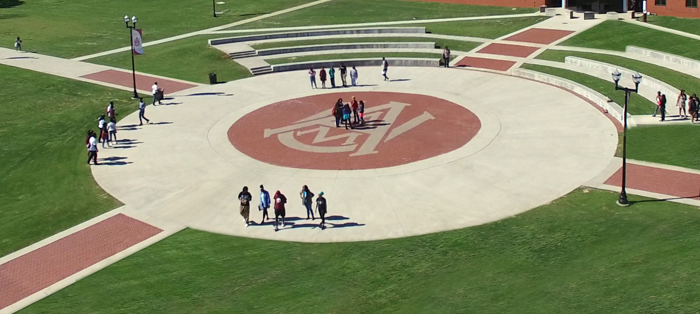Institute Team
alabama Agricultural and Mechanical University Team Members

Dr. Nathan Blom, Project Co-Director, is an Assistant Professor of Secondary Education at Alabama A&M University. He specializes in the preparation of secondary English and social studies teachers by supervising pre-service teacher candidates and teaching ELA and social studies methods courses. Dr. Blom taught high school ELA in New York City for sixteen years. He is also a co-founder and lead facilitator for the Literacy Unbound professional development institute at Teachers College, Columbia University. In this position, he has been creating and leading multi-modal, project-based professional development summer institutes for humanities teachers for the past nine years. He is also the author of the articles “Creative Criticism: Dialogue and Aesthetics in the English Language Arts Classroom” (Journal of Adolescent and Adult Literacy) and "Invitations to Create: A Fugitive Practice of Equity Pedagogy" (English Journal). Dr. Blom has presented on innovative, equity-oriented humanities pedagogy at more than eighteen conferences. In his role as co-director, Dr. Blom coordinates the overall curriculum for the institute, including academic sessions, and field-based components.

Dr. Stacy D. Carter, Project Co-Director, is an Assistant Professor of Political Science and the Political Science Department Chair in the Department of Social Sciences at Alabama A&M University. Carter has over 15 years of experience teaching African American history, Modern United States history and American Southern history courses. He has published in the Journal of Mississippi History and presented several times at the Association for the Study of African American Life and History. Dr. Carter has been a strong advocate of civic engagement and voter awareness. He has served on several panels and facilitated several workshops for students, members of the public and community leaders. Currently, Dr. Carter is one of the section chairs for race and ethnicity for the American Association of Political Sciences, for which he will be also presenting a paper and serving as a panel discussant at the 2023 annual conference.

Ms. Veronica Henderson, Academic Support Staff and Replacement Director, currently serves as the Interim Director of the J. F. Drake Memorial Learning Resources Center & State Black Archives Research Center and Museum at Alabama A&M University. She has extensive knowledge pertaining to Alabama A&M University, evidenced by her years of experience working in the University Archives by interpreting, promoting, and assessing collections through instruction, exhibits, events, and presentations. She links the past to the present through her statewide connections and brings to life the stories and recollections of African American forebears. Ms. Henderson served as a co-panelist at state and national archival conferences on primary source documents.
Teachers Collge, Columbia University Team Members

Dr. Adele Bruni Ashley, K-12 Leader. Dr. Ashley's years of secondary public-school teaching, her M.S.Ed. in Educational Leadership, and her work with the Center for the Professional Education of Teachers (CPET) at Teachers College since 2014 as the co-creator and lead facilitator for the Literacy Unbound Professional Development Summer Institute make her uniquely qualified to serve as the K-12 Leader in this NEH Summer Institute. In addition, Dr. Ashley's work as full-time lecturer and M.A. program coordinator in the Teaching of English program at Teachers College has centered on teacher education, and she regularly teaches courses focused on curriculum development.

